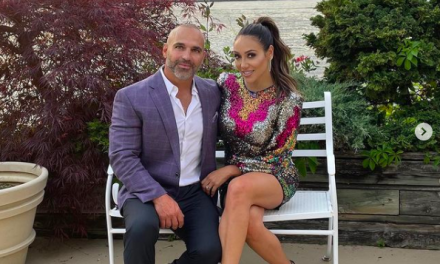
Impatience is a classic toxic money mindset that tells us attractive lies. Impatience can lead to impulsive decisions that can have a negative impact on your financial health in the future. This article will discuss how to overcome impatience and make better financial decisions.
Here’s what impatience can sound like:
- “I just need to stick to a budget.
- “I expected myself to be further along by this point in my life.”
- “This debt is killing me; I just need to pay it off.”
Sure, impatience can look like it’s helping you take action, stay productive, take things seriously, or stay focused. And that’s a pretty good sales pitch.
Unfortunately, decisions made from a place of impatience are by definition quick, reactive, and deeply emotional.
It’s important to recognize that impatience indicates an unmet need. And while everyone is different, typically the unmet need that drives impatience is the need for progress. We long for progress because it’s hope that wherever we are in our lives, it is temporary.
Crisis and trauma add fuel to the fire of this unmet need, compelling us to make even faster decisions, not all of which will be good for the future versions of ourselves.
Impatience Tells Us We Don’t Have Any Other Choice
The survival-obsessed part of our brains, the amygdala, does not appreciate it when someone or something removes choices from us. Even if that someone is our own selves!
A removal or reduction of choice feels like we’re cornered. And we will react to that removal or reduction of choice quickly, and without much thought. These reactions are made without the permission of our executive function, and typically (but not always) are not good long-term decisions in our modern world.
The result of these not-so-good long-term decisions? Why it’s a greater expectation of making “good” choices and a lack of patience in ourselves when we don’t.
Those short-term focused decisions can eventually feed a sense of failure, which will likely only increase a sense of urgency and impatience.
Impatience Feeds Failure into Our Decision Making
We have long memories for our own failures. This isn’t a bug in our brains; it’s a feature. Being able to gather data and look for patterns from the past does help us make better decisions in the future, but not if that data is mixed with shame, judgment, and failure.
Failure blinds us.
Rather than being able to gather information, assess possible choices and use patterns and data from our past to make decisions, we judge ourselves.
So What Can You Do to Counteract Impatience and Its Impact on Your Decision Making?
You can practice grace for yourself.
Asking my financial coaching clients to practice grace for themselves is the hardest thing I can possibly ask of them.
The purpose of practicing grace for yourself is to learn how to trust yourself. Only by learning to trust yourself can you get long-term positive behavior change without force or restriction.
Self-acceptance and grace also help further lift the fog that comes along with the urgency and panic that drives impatience.
Grace doesn’t mean an abdication of all responsibilities, of course; it just means acceptance of past decisions. Giving ourselves grace means we can begin to trust ourselves, be resilient, and make better long-term choices.
Grace Is Also a Practice in Slowness
With slowness comes intentional decision making and typically better (read future-focused) decision making. Rather than making choices from that quick, reactionary, gut-clenching place that impatience drives us to, we get the chance to make choices with our heads on a swivel.
Giving ourselves grace is not always easy, especially if there is a history of self-criticism, but is a critical way to begin healing your own financial trauma.
Here’s how I teach my clients the first few steps of practicing grace for themselves.
Story Time!
I’d like you to imagine a scientist out in the wild, they’ve got their pith helmet and their khaki clothes and their little notebook and all that. Let’s assume this is a good and ethical scientist.
Our scientist is observing a wild animal. Would they be trying to change the wild animal’s behavior?
Not if they’re a good scientist.
The scientist would just be observing and taking notes, right?
So let’s say the scientist has observed long enough and thinks they understand the wild animal’s “normal” behavior. And then the scientist watches the wild animal deviate away from that normal. Would the scientist try to correct the animal’s behavior?
Probably not. But why wouldn’t the scientist try to correct the animal’s behavior?
Well, maybe the scientist was wrong about what is normal for the animal. Maybe this behavior is not something the scientist has had the opportunity to observe yet.
Maybe the scientist might get curious and ask more questions, but they are probably not going to correct the animal’s behavior.
Now, the scientist sees the animal eat something gross. Is the scientist going to write in their notes, “Oh my god, this animal is so disgusting, I can’t believe it just ate all of that rotten, moldy elephant poop!!!”?
Again, not likely. The scientist would just observe and take notes. Date, time, how much elephant poop, etc.
The scientist has three jobs. The first is just to observe, just gather information, right? The second job is to look for patterns. Humans are almost too good at pattern recognition. And the third job the scientist has is to come up with a hypothesis and then a test or experiment to check that hypothesis.
So how does telling the story of the wild animal and the scientist help people give themselves grace?
You Are Both the Wild Animal AND the Scientist
Any time you’re observing your own behavior, I’d like you to try not to change your behavior. Intentionally changing (correcting) our behavior while we’re observing means we get back messy data.
After you practice observing your own behavior without judging, you’ll just naturally begin to notice patterns… this part I don’t have to teach.
Some of those patterns you’ll want to reinforce, and some you’ll want to interrupt, and to do that, you’ll need an experiment.
Experimenting on yourself means you need to evaluate the interruption, trial, or experiment, NOT yourself. By evaluating the systems you use, not yourself, you can adapt and evolve your systems much faster and more efficiently.
As long as the interruption is small and neutral, it will help. The interruption cannot in any way be a punishment. You do not need punishment to gain awareness.
Punishment Kills Grace
In the case study above, I’m asking my client to practice self-awareness without judgment. By doing so, she is also practicing grace for herself.
Awareness without judgment (grace) means we get a little break from the pressure and urgency that stokes impatience.
Let’s Think About It:
Do you often feel impatience when making financial decisions? What presses you to move fast? How would your financial decision-making change if you practiced just 20% more grace for yourself than you do now?





